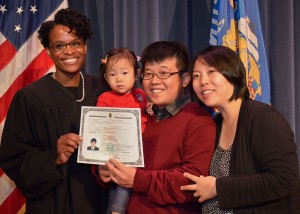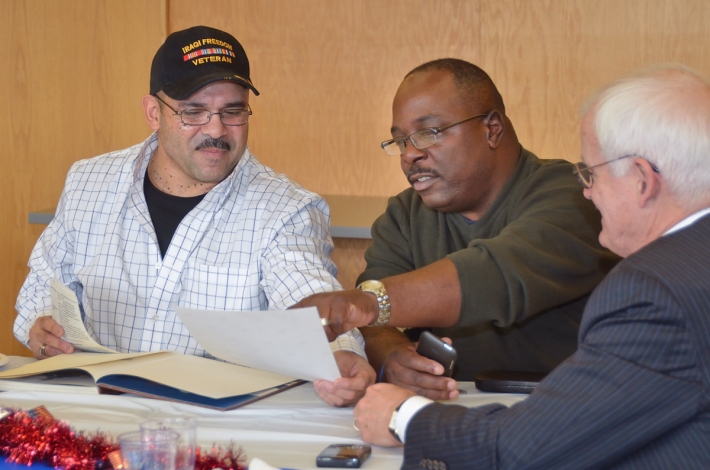MATC was one of the four Wisconsin Technical Colleges U.S. Senator Tammy Baldwin visited this month to introduce the Grants for Renewable Energy Education for the Nation (GREEN) Act, which provides funding for clean energy career and technical training programs. The result: students who are better trained for post-secondary education and better equipped for the high-skilled jobs of the future.
Senator Baldwin’s visit to our Downtown Milwaukee Campus featured a panel of students, faculty and business partners; a trip to an electronics classroom to observe an experiment using operational amplifiers; and a stop in our Women in Technology Center to meet more students. I was impressed at Senator Baldwin’s genuine interest in our students, our faculty, our partners and our programs.
The college, of course, was thrilled to host Senator Baldwin and tout our innovative responses to rapidly growing and evolving industries. It’s fitting that Senator Baldwin chose technical colleges to announce her proposed legislation; for more than a century the state’s technical colleges have been poised to respond to the demands of our local businesses. And that is exactly what we are doing in the fields of “green” careers.
Milwaukee Area Technical College has a long and proud history of implementing green initiatives in our classrooms and on our campuses. In fact, we practiced sustainability before it became fashionable to do so. I am committed to implementing policies and practices that reduce our carbon footprint and continuing to offer academic programs that prepare students for careers in emerging technologies, including some that have yet to be introduced.
WTCS President Morna Foy participated in the event. She commented, “Over the past several years, Wisconsin’s technical colleges have created cutting edge sustainability programs in areas like wind, solar and geothermal. We’ve also “greened” our remaining curriculum by including sustainability concepts in sectors including agriculture, construction and health care. The GREEN Act supports and advances this work in a ground-breaking way.”
I appreciate Senator Baldwin’s leadership in proposing funding for education and training that will prepare Americans for clean energy careers. The proposed GREEN Act is an innovative approach to ensure the workforce is prepared for jobs in emerging technologies. Milwaukee Area Technical College is committed to continue to develop academic programs that enable Wisconsin residents to pursue these growing career opportunities.














